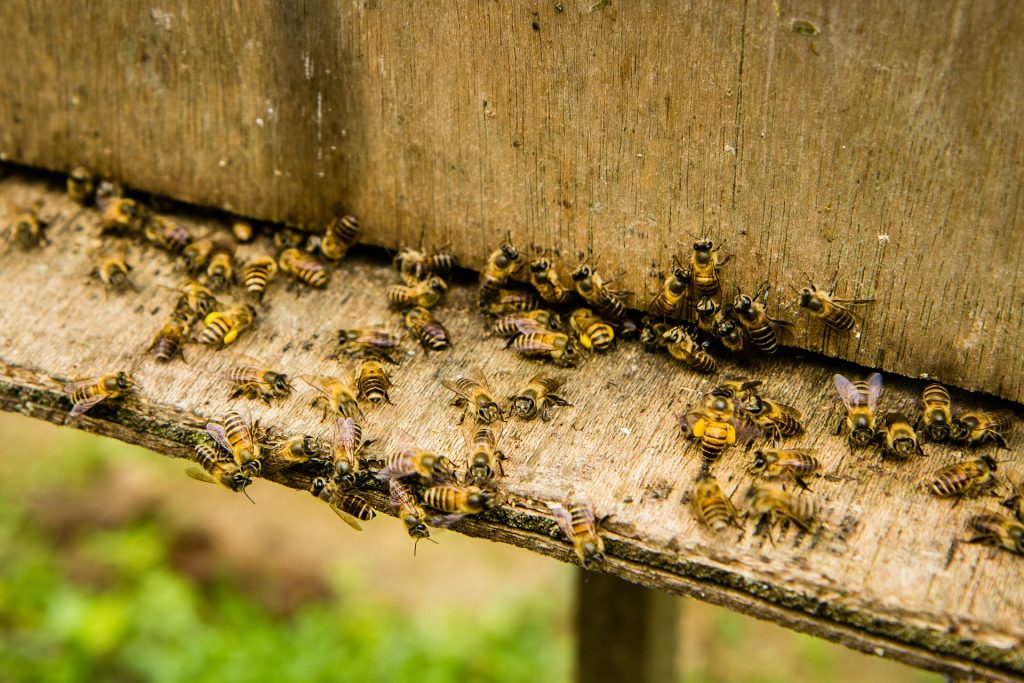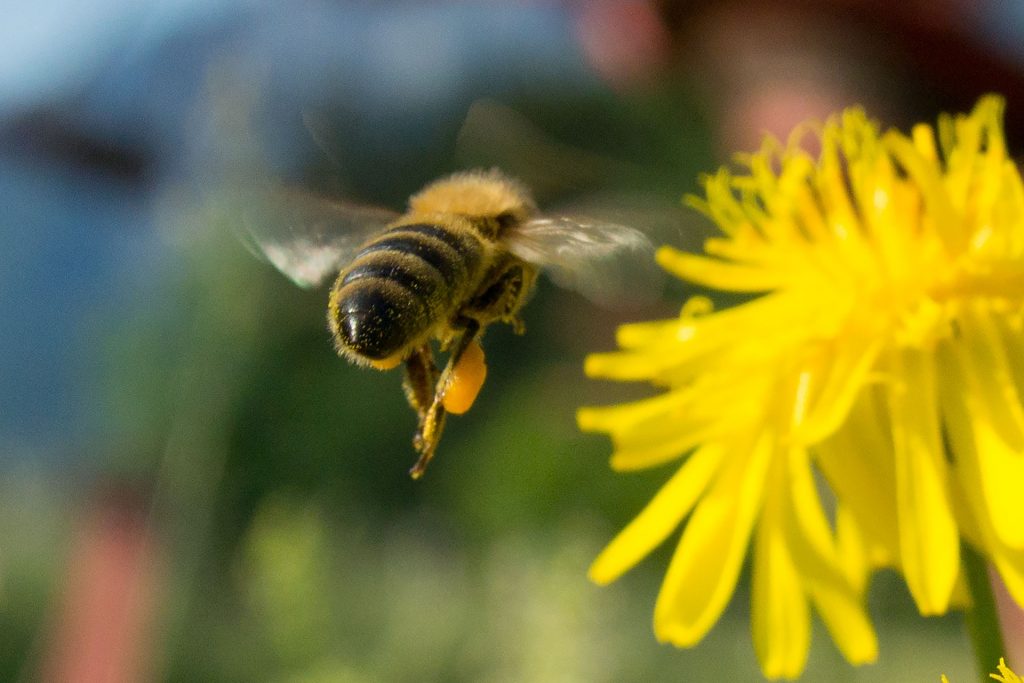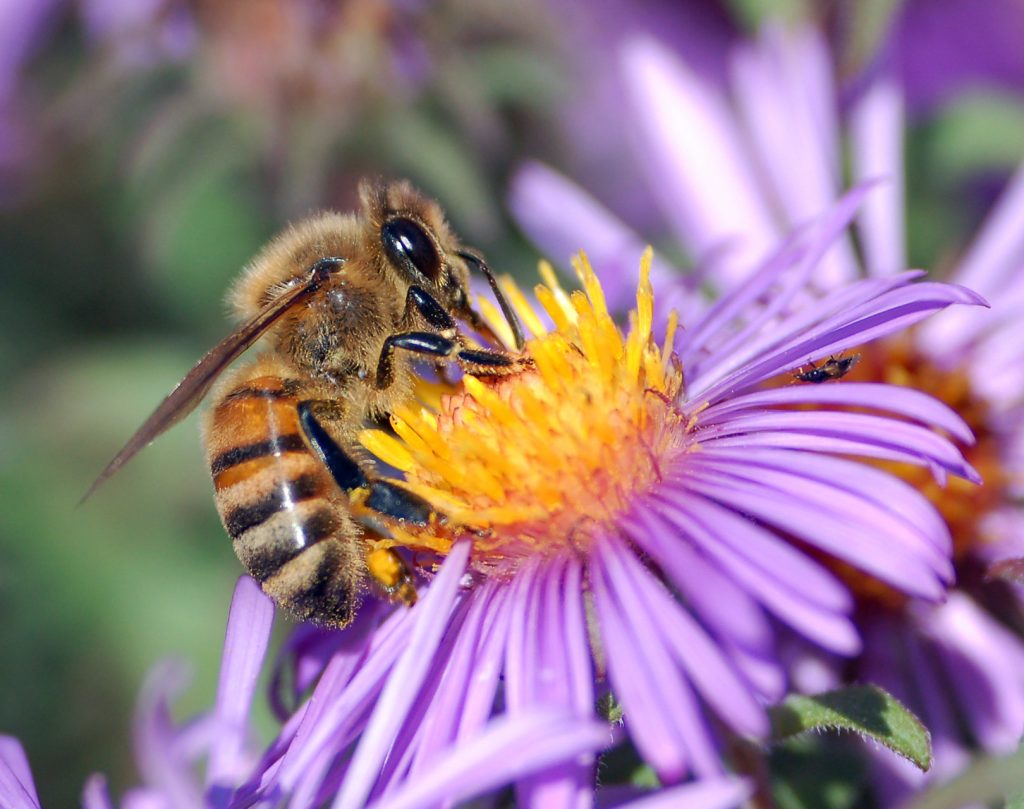The disappearing buzz. US beekeepers lose 33% of honey bees
Beekeepers across the United States lost 33 per cent of their honey bee colonies in the last year, but while annual losses are lower than in previous years, scientists say this is not good news.
Beekeepers across the United States lost 33 per cent of their honey bee colonies during the year spanning from April 2016 to April 2017, according to the preliminary results of an annual nationwide survey. Rates of both winter loss and summer loss are lower than in previous years, yet scientists say that this is not good news.
“While it is encouraging that losses are lower than in the past, I would stop short of calling this ‘good’ news,” said Dennis vanEngelsdorp, an assistant professor of entomology at the University of Maryland and project director for the Bee Informed Partnership. “Colony loss of more than 30 per cent over the entire year is high. It’s hard to imagine any other agricultural sector being able to stay in business with such consistently high losses,” he further added.
The disappearing buzz

The survey, which is conducted each year by the nonprofit Bee Informed Partnership in collaboration with the Apiary Inspectors of America, found that total annual losses in 2016-17 were the lowest since 2011-12, when the survey recorded less than 29 percent of colonies lost throughout the year. Winter losses last year were the lowest recorded since the survey began in 2006-07.
When it comes to the reasons behind the losses, according to vanEngelsdrop, the main cause is that bees became infected with an external mite called Varroa destructor.
Varroa mites were not the only parasites attacking honey bee colonies across the US. Parasites, such as the gut parasite Nosema, and viral and bacterial diseases have also been among the primary causes that drove up death tolls.
Another big issue that keepers have faced in recent years is poor nutrition. As bees lost part of their natural foraging habitat, providing correct nutrition has become a problem. Moreover, pesticide exposure has taken a toll, especially among commercial beekeepers. These and other stressors are likely to synergize with each other to compound the problem, the researchers said.
“This is a complex problem,” said Kelly Kulhanek, a graduate student in the UMD Department of Entomology who helped with the survey. “Lower losses are a great start, but it’s important to remember that 33 percent is still much higher than beekeepers deem acceptable. There is still much work to do,” she continued.
The survey is part of a larger research effort to understand why honey bee colonies are in such poor health, and find the ways in which loss can be prevented and colonies rebuilt.
More than 4,900 beekeepers from all 50 states and the District of Columbia responded to this year’s survey. These beekeepers manage about 13 per cent of the nation’s estimated 2.78 million honey bee colonies.
Agriculture, in danger

The disappearance of bees also causes concerns to other producers, especially as agricultural crops depend on bees for pollination. Some crops, such as almonds, depend entirely on honey bees and scientists estimate that they pollinate $15 billion worth of crops in the U.S. annually.
According to the U.S. Department of Agriculture, bees pollinate 80 per cent of flowering crops, which make up one third of the food eaten in the U.S.
Fruits like tangerines, cherries, sweet grapefruits, peaches, oranges and apples, depend in a proportion of 90 per cent of pollinating bees.
The United States is not the only country fighting against declining bee populations. In Europe, the most recent survey showed that in many European regions, numbers are also falling. Moderate losses were seen in Germany, Denmark and Northern Ireland, while high losses were reported in Ireland, The Netherlands and Switzerland. The EU has put in place rules and regulations while adopting new policies in order to prevent future losses and rebuild the bee population.
Bee populations also speak about the health of the environment, scientists warn.
“Bees are good indicators of the health of the landscape as a whole,” said Nathalie Steinhauer, a graduate student in the UMD Department of Entomology who leads the data collection efforts for the annual survey. “Honey bees are strongly affected by the quality of their environment, including flower diversity, contaminants and pests. To keep healthy bees, you need a good environment and you need your neighbors to keep healthy bees. Honey bee health is a community matter,” she explained.
Give a helping hand

Those that want to get involved and help restore bee populations should pay attention, NGOs say, to the use of pesticides, natural habitat loss, plant bee-friendly flowers and shrubs. Other ways they could help would be to support organic farmers, become beekeepers, adopt a hive or even set up bee refreshing stations by providing a bowl with water and sugar, so bees can rest during their journey.
Scientists also warn that climate change plays an important part in managing bee populations. Rising temperatures, fluctuations in rainfall and extreme weather conditions impact pollinators’ lifespan and practices. Global warming may also affect the natural synchronization between bees and plant life cycles.